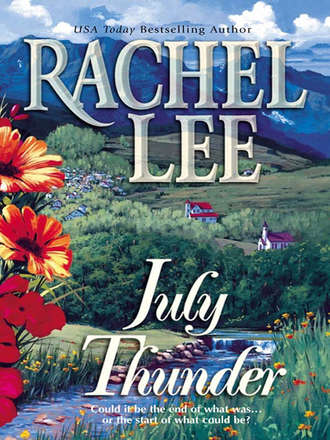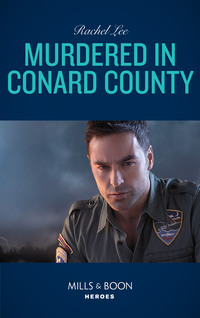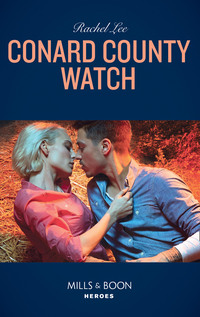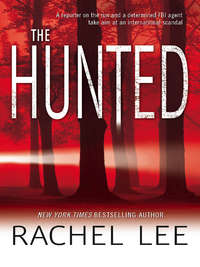
Полная версия
July Thunder
“Damn,” George said. “Damn.”
The beast had leaped its own perimeter, running free. George picked up his radio and began to bark rapid orders. They couldn’t wait for dawn. Not now.
Mary dressed for dinner with rather more care than was her custom in a town where casual dress reigned. She chose a green polished cotton dress and a pair of two-inch heels. Her hair, usually allowed to fall in waves below her shoulders, she decided to put up in a loose knot with a few long curls hanging free.
It was more effort than she wanted to think about, considering that Sam and she had agreed that this wasn’t a date. She even went so far as to dab on a little perfume.
At six she peeked out to see if Sam had arrived. Instead she saw her neighbors gathered in their front yards, looking to the west. Curious, she went out to discover what was going on.
“It’s a fire,” Elvira Jones, who lived in the house on the left, told her. “In the next valley.”
Mary turned to see the thick cloud of smoke hovering over the mountains, catching the red of the lowering sun. “How bad is it?”
“Not a threat to us yet,” Elvira answered. “But my Bob says they’re worried about it coming through Edgerton Pass. He went to volunteer.”
Mary immediately turned to her. “You must be worried.”
“Nah.” Elvira smiled, her crow’s-feet deepening. She loved to ski so much that she had a permanently sun- and wind-burned face. “He’ll just be helping with a firebreak at the pass. He won’t get near the flames.”
But Mary remembered fires from the past, remembered how a little wind could create desperate situations. At least there wasn’t a breeze right now. Of course, in the next valley that might be different.
“There aren’t many people living out that way, are there?”
Elvira shook her head. “Just a few loners. It’s too hard to get out of there in the winter.”
Mary nodded, trying to remember if any of her students lived out that way. She didn’t think so. Elvira was right. There couldn’t be more than a half dozen folks out there. As long as they could contain the fire, there wouldn’t be much damage to property.
Just damage to the forest. Harkening back to environmental lessons from her college days, she seemed to remember that was actually a good thing, fertilizing the soil, clearing out old and dead growth, making way for renewal. “It’s awfully late in the day to be sending people out there.”
Elvira shrugged. “They can’t just let it burn.”
No, Mary supposed they couldn’t do that. Glancing at her watch, she saw it was six-fifteen. Sam still wasn’t there. Her heart skipped uncomfortably as she wondered if he’d gone to fight the fire, too. After a brief hesitation, she decided to go inside and call.
Sam’s number was in the book, but there was no answer. She waited another fifteen minutes, then called Maggie Sanders, the sheriff’s wife. She didn’t know Maggie well, but she recognized her from the times she’d come to school about her daughter Allie Williams. Allie, in fact, was going to be in Mary’s literature class this coming school year.
“Maggie?” she said when the other woman answered. “This is Mary McKinney. I was supposed to come for dinner tonight with Sam, but he hasn’t shown up yet, and I can’t reach him at home.”
“Mary! I’m glad you called. Earl didn’t know who Sam had invited, and he was hoping you’d call here. Sam’s up at Edgerton Pass, helping the firefighters. A bunch of us are getting some food together to take up there. Do you want to help?”
“Of course I do. But I don’t have a car. Mine’s in the shop.”
“Not a problem. I’ve got to run by Wiggand’s in about thirty minutes. They’re making up a bunch of burgers and fries to take up there. I’ll pick you up on the way. Say…twenty-five minutes?”
“Sure. I’ll be ready.”
She changed swiftly into jeans, hiking boots and a T-shirt, then topped off the outfit with a flannel shirt and a light jacket. Even in summer, the nights grew chilly at this altitude.
God, she hoped Sam wasn’t anywhere near the fire.
She waited outside for Maggie. It was getting darker now, though the sky above the western mountains was still light and smoky. But now the orange glow of fire was visible to the northwest. Her neighbors had all gone back into their homes, and the street was deserted in the mountain twilight.
A light came on across the street, and a man’s shadow moved behind thin curtains. On impulse, Mary crossed over and knocked on Elijah Canfield’s door.
Presently he opened it, his white hair looking like a nimbus in the light behind.
“Reverend Canfield,” Mary said, “I thought you’d want to know that Sam is up in the mountains fighting the fire.” Then, before he could say a word in response, she turned and hurried back across the street. She didn’t want to know if he thought she was a busybody, didn’t want to hear anything he might have to say about Sam. Any man who could think Sam Canfield had failed in life was a man she didn’t want to know.
She was aware that he stood there a while in his open door, but she didn’t look his way. He might be staring at her, or he might be staring at the threatening glow over the mountains. He might be stunned, or he might be indifferent. She just didn’t want to know.
Maggie Sanders was only a few minutes late. She pulled up near Mary in a silver Suburban and leaned over to open the door. “Hop in.”
Mary obeyed, climbing up into the seat and reaching for the belt. “Where’s Allie?”
“At a friend’s house in town. I didn’t want her to be home alone.”
Mary felt a shiver of apprehension and glanced at Maggie. “That’s right. Your house is close to the pass.”
“Yeah.” Maggie shook her head and put the car in gear. “I’m trying not to think about that. But there are quite a few houses scattered around out there. And The Little Church in the Woods.”
The sun had completely vanished by the time they reached the top of Edgerton Pass. Vehicles were everywhere, pulled off to the side of the road, and a tarp-covered command center was now lighted by gas lanterns.
The smoke from the fire, once again a thick, rising column that reached high into the sky, caught the sunlight, glowing golden and red at the top. Below, in the shadows, it turned silvery-gray, smudgy. Occasionally it would part a bit and reveal the hellish glow of flames.
It was a few miles away, Mary noted with relief as she helped Maggie unload the insulated food containers and pass them out to the men. But even as she felt the relief, she realized how rapidly the situation could change.
“Sorry I didn’t call.”
The sound of Sam’s voice caused her to turn around just as she finished lifting two foam containers from the back of the Suburban. Standing there with the cartons in her hand, she felt relief pour through her, so great that for an instant her knees felt rubbery. He wasn’t down in the valley. A little warning bell clanged in her mind, pointing out that she was reacting too strongly, that she didn’t know Sam well enough to feel this strongly. But the thought whispered away as he smiled at her.
“Hamburger and fries?” she asked stupidly.
“Sure. Thanks.” He took a container and opened it, then took a huge bite of the burger. “Are you mad at me?”
“For what?”
“Standing you up.”
It was a good thing it was getting dark, because she could feel her cheeks heat. “It wasn’t a date, remember? Besides, I hear there’s a fire.”
He smiled with his mouth closed, the food bulging in his cheek, and nodded. Other men were approaching, and Mary turned quickly to give them food, as well.
A pickup truck arrived, carrying huge insulated jugs and folding tables. Two mothers who Mary knew from school jumped out, and soon they were all helping to set up the tables near the command tent, on a fairly level bit of pine-needle-covered forest floor. The insulated jugs were full of hot coffee.
Soon another truck arrived bearing cups, water and bags full of chips.
“Instant supper,” Sam remarked. “I need to get some of that down to the guys in the trenches.”
“I’ll drive it down,” Maggie offered.
“Like hell you will. I like my butt just the way it is. Earl would have my hide. I’ll take it.”
So Mary found herself helping to load Sam’s truck. He’d switched his cruiser for one of the department’s Blazers, and they filled the cargo area with food and drink. Moments later Sam headed down into the valley on the narrow, paved road.
Maggie reached out and took Mary’s hand. “He’ll be okay. George Griffin, that forester guy, told me the crews aren’t anywhere near the fire.”
Mary squeezed her hand back. “I know. He’ll be fine.”
Maggie arched a brow. “Are you two an item?”
“No. We’re very clear on that. Not even dating.”
“Really?” A crooked smile came to Maggie’s mouth. “If you say so.”
Mary felt a little burst of irritation, then reminded herself it didn’t matter whether Maggie believed her or not. Time would tell. Which could, she thought, be the whole problem. Not whether Maggie believed her, but whether she believed it herself. Whether she wanted to believe it herself.
Because Sam was an attractive guy. Very attractive. And he seemed both nice and gentle, a rarity in a man. As if he didn’t feel a need to prove anything.
Mary sighed and went back to the table to help serve. It didn’t matter, she told herself. It would never matter. She wasn’t in the market for a relationship, good or bad. And she certainly didn’t deserve a good one.
The wind kicked up. It was nearly ten o’clock, and the last of the day’s warmth had seeped from the thin air. As cold air sank into the warmer valleys, the breath of the breeze stirred and grew. The fire hungrily sucked it in, feeding the flames with fresh air. The angry red glow brightened.
The planes were still flying overhead, dumping their loads of chemicals on the flames. But even as each load fell and fire winked out beneath the assault, the flames spread elsewhere. Before the wind started, it had looked as if they were winning. In an instant, all that changed.
Like orange lights winking on in the darkness, the flames scattered to trees farther away, jumping long distances. Heading south, heading up the mountainsides. Where there had been only one fire, in minutes there were six or seven of them.
George Griffin was talking anxiously into his radio, calling for more chemicals and water.
The wind, shifting almost wildly, blew smoke their way, blinding them, causing Mary to cough as it burned her throat. Then it blew another way, briefly burying the entire valley in an inky pall. Moments later the pall lifted, blurring the stars and revealing the disaster below.
More fires burned now, individual blots of orange and red in the darkness. And the conflagration was creeping toward the pass.
Huge tongues of flame leaped upward, more than twice the height of the trees. Even at this distance an occasional loud pop could be heard as a tree exploded in flames. And on the wind they could hear the distant roar, like that of a hungry beast.
A shoulder brushed Mary’s, and she looked to her side. Elijah Canfield stood there, staring at the fire. “Where’s Sam?” he asked.
“I think he’s still down with the crew building the firebreak. He didn’t come back up after he took food down.”
His eyes, intense even in the dull red glow that was lighting the night, fixed on her. “Doesn’t anyone know for sure?”
Mary felt a stirring of impatience, accentuated by her growing anxiety. “That’s the last we heard from him. If you don’t believe me, there’s George Griffin.” She pointed. “Why? Are you worried about him?”
Under any other circumstances it would have been an unthinkable question to ask a father, but this father…well, he deserved it.
His gaze seemed to burn into her, but he didn’t answer. Instead he strode away toward George.
Maggie spoke from behind her. “Chilly sort of guy.”
“That’s Sam’s father. The Reverend Elijah Canfield.”
“Whew.” Maggie looked toward him. “Sam never mentions him.”
“I’m beginning to understand why.”
Maggie faced her. “Trouble between those two, huh?”
“I guess so.” She didn’t feel free to share what Sam had told her privately, so she opted for vagueness.
“I can’t say I’m surprised. Sam is one of the nicest guys you’d ever want to meet, but he’s closed off, if you know what I mean. He was that way even before his wife died, except maybe with her.”
Mary felt the kick of interest. “Did you know her?”
“Sam’s wife? Sure. We weren’t best friends or anything, but Earl and Sam have been great friends from the instant Sam moved to town. So Earl would invite me and my late husband over sometimes, and Sam and Beth would be there. She was fun. Outgoing, unlike Sam. Young.”
“Young?”
“Not in years. She was close to Sam’s age. But…I don’t know. She always impressed me as being about eighteen.” Maggie shrugged and flashed a grin. “Probably because I had a daughter and she didn’t. I was buried in responsibility, and she was still having fun being married and in love. You know what I mean. No criticism, by the way.”
“I know.” Mary felt the hovering black cloud that never quite left her reach out for her heart. She hadn’t told a soul in Whisper Creek that she’d had a son. Not one. She couldn’t bear to explain. Or to be reminded.
“Or maybe,” Maggie said after a brief pause, “it wasn’t that she was young. Maybe it’s that I was so emotionally old at the time myself. Going through bad things. Maybe I just envied her vivacity.”
Mary nodded. She could understand that. She felt as old as the hills herself in some ways. Too old to laugh easily, too old to take pleasure in much. Too weary. But she didn’t want to think about herself. “What was going on?”
“Oh.” Meg shrugged. “It’s still hard to talk about. But my first marriage…well, we were going through a rough time back then. I was feeling isolated and pretty down.”
Mary nodded again. “I can identify with that. Things have a way of…going sour, sometimes.”
“They sure do.” Maggie sighed. “Then, of course, my husband died, and there was no way to fix anything. Thank God for Earl.”
“He’s a nice man.” Although Mary didn’t know him very well. She’d pretty much kept to herself since taking the job in Whisper Creek. Her friendships were all superficial, extensions of her job. She didn’t want anyone getting close enough to find out the truth about her. Not only because she felt so guilty, but because she felt so ugly.
“Yes, he is.” Maggie smiled. “And so’s Sam. I’m glad he and Earl are friends. Well, maybe you can drag Sam out of his cocoon.”
“Me?” The thought made Mary blanche. Dragging anyone out of their cocoon meant she would have to come out of hers, and she wasn’t about to do that.
She had a sudden, vivid memory of a caterpillar one of her students had brought to her classroom in Denver. Back then, she’d been teaching third grade, awaiting an opening at a nearby high school.
The girl had brought the caterpillar in a mason jar, along with a small, leafy twig. It was a pretty caterpillar, probably why the girl had liked it. Before the morning was over, the caterpillar had started spinning its cocoon.
The excitement in the classroom had been palpable, so instead of asking the girl to let the poor beast go when she got home, Mary had allowed her to keep it in the classroom as a science lesson. They’d all been surprised by how fast the cocoon was created.
Then had come the morning when the butterfly had emerged. Everyone had crowded around the jar, watching excitedly. The creature was weak, its wings folded and stuck together.
At that point, Mary’s compassion had overborn the necessity of teaching a science lesson. She’d suggested they let the little butterfly go free. Everyone had agreed.
Outside, they’d waited and watched as slowly the wings had dried and spread. But one of them was deformed, and that butterfly would never leave the ground. Seeing what was coming, Mary had swiftly herded her students back to the classroom.
An hour later she went out to check. As she had feared, the butterfly had been killed by ants because it couldn’t escape. There was little of it left.
And that, Mary thought, was why she needed her cocoon. Her wings were deformed. She knew it. The ants would kill her if she ever emerged.
“Why not you?” Maggie asked, her cheerful voice penetrating the haze of Mary’s memory. “You’re the right age, you’re pretty, you’re nice, and Sam seems interested.”
“He’s not interested,” Mary blurted before she could stop herself.
Maggie peered at her, the shadows on her face highlighted by the limited range of the kerosene lanterns. “Not interested? He was bringing you to dinner.”
Mary shrugged. “That was…well, it wasn’t a date. We agreed on that.”
“Oh, my word,” Maggie said, and fell silent.
Mary chose not to pursue that comment, even though it sounded disbelieving. What was the point, anyway? What Maggie might think had no bearing on what was actually happening, or on the fact that Mary never would have accepted the dinner invitation if Sam hadn’t said it wasn’t a date.
“Well,” Maggie said presently, then said no more.
Needing solitude, Mary walked away from the food tables toward an area from which she could see the fire better. In the darkness, a red fog seemed to fill the north end of the valley, and here and there tongues of fire burst above it. It was getting closer. Showing no mercy.
But then, the world, or the universe, or whatever you chose to call it, didn’t show mercy. Ever. It was a cold, heartless world, where bad things happened no matter how good you were.
“It looks like the fires of hell,” Elijah remarked.
Mary started, surprised that he had joined her. She wondered if he was going to stick like a burr to her. And if so, why. “It looks like a forest fire,” she said flatly.
His face, only dimly illuminated by the lanterns behind them and the glow from the fire, looked dark, a ruddy black. His shaggy white eyebrows seemed to glow with their own light. They lifted. “You don’t believe in hell?”
“Oh, I believe in it, all right. I just don’t think we agree on what it is.”
“I see.”
She averted her face, hoping he would take the hint and leave her alone. He didn’t.
She heard what at first sounded like the rush of running water. But then, as the pitch-black treetops began to sway against the slightly lighter sky, and as the kiss of the breeze nipped at her ears, she knew what it was. The wind was coming up strongly.
Not just the earlier occasional gust, this was strong, steady. Exactly what they didn’t need.
At first it seemed content to sweep the mountain-top and ignore the valley. Mary tensed as she waited, hoping against hope it wouldn’t sweep down the slopes and spread the fire. Beside her, she heard Elijah begin a low-voiced prayer. Almost instinctively, she reached out and took his hand, silently joining him. To her surprise, she felt him squeeze her fingers.
And she wondered yet again why Elijah seemed to be haunting her.
6
Dawn seeped through the smoky haze, bringing a dim gray light to the men who had struggled all night to build a firebreak below Edgerton Pass. Even though the fire was nowhere near reaching them yet, the area still looked as if it had been bombed out. Trees had been cut down, and during the night bulldozers had arrived to shove them away from the cleared area. Now there was nothing to be seen except a wide, barren strip they hoped the fire couldn’t cross. There was still more work to be done, more land to be cleared, but the crew that had worked all night was being dismissed as replacements arrived.
Sam was among those leaving. He climbed into his truck, offering rides to some of the other men. The air reeked of wood smoke, enough to make their eyes burn. All of them wore kerchiefs over their mouths.
Climbing up the pass didn’t make it any better. It was like driving through a pea-soup fog that stank of burning pitch. It was as if he could have driven off the end of the world at any moment.
The command center at the top of the pass was a hive of activity, but this morning almost all the faces were new. George Griffin was still there, though, handing over the reins to his replacement.
Sam parked, letting the other guys out to go to their own cars. He went over to George and asked, “What’s the news?”
“Not good.” George sighed. His eyes were red from the smoke, and his face had a gray cast to it. Most of the faces did. Soot was settling everywhere. “We’ve got four different fires burning now, maybe twenty-five hundred acres each. Hard to tell how bad it is right now, though.”
It certainly was. Once again the pall of smoke concealed the fires and most of the valley.
“Go on home,” George said. “Get some sleep. We’re going to need all the rested help we can get later.”
That didn’t sound good, Sam thought as he headed back to his truck. Not good at all. He didn’t have any experience with forest fires, but he’d read some about them. Fighting them was never easy, and in a place like this, with no road access to the burning area, it was even worse. Everything out there was fuel.
The air stirred a little, and fine ash sprinkled over him. He hardly noticed it; it had been happening all night. Right now he needed his bed and about ten hours of sleep. He figured he could only allow himself six or seven, though. He would have to get back up here as soon as he could.
“Hi.” Mary stepped toward him, looking as gray as the rest of them in the dim morning light. Her eyes, too, were red-rimmed and watery looking.
“You’re still here?” he asked.
She nodded. “I promised your father I’d make sure you got back here safely.”
“My father?” Cripes. Just what he needed to think about right now. Anger stirred in him, a not-quite-sleeping beast. “What the hell does he care?”
“He seems to.” She shrugged. “Can I hitch a ride to town? No car.”
“Sure. Yeah, sure.” He opened the passenger door for her, then slammed it after she’d slid onto the seat. His father. Of all the damn things…
The man hadn’t given a single damn about him in fifteen years, at least. Why the hell was he concerned about Sam’s health now?
A show, maybe? Perhaps it was uncomfortable for a minister of God to have people know he wasn’t even speaking to his son. That could well be. Make it look as if it was all Sam’s fault. As far as Elijah was concerned, everything was Sam’s fault anyway, and always had been.
But it was way too late for the prodigal son routine. Way too late.
Sam headed the truck down the winding road, taking the corners just a little too fast.
“Sam?” Mary spoke. “Are you okay?”
“Yeah. What kind of crap is he shoveling, anyway?”
“I don’t know. Are you sure it’s crap?”
He glanced at her, his eyes still burning. Just the smoke, he told himself. “Yeah, I’m sure. He’s the man who called me the day after my wife’s funeral and told me her death was a punishment for my sins.”
“Oh, no!” Mary’s tone was full of distress. “Oh, Sam.”
He took the next corner practically on two wheels and forced himself to slow down. Maybe he didn’t care if he died, but he cared that Mary didn’t. “I’m sorry I missed dinner,” he said, changing the subject.
“It’s okay. Maggie told me you were up here. The fire’s more important.”
“Thanks for understanding.”
“There’s nothing to understand.”
But he couldn’t leave the subject of his father alone. It was like a scab that itched, and he couldn’t ignore it. “What did he say to you, anyway?”
“Elijah? Not a whole lot. He doesn’t seem like a very talkative man.”
“Huh. That’s a surprise. Used to be he could never shut up. Always thundering about something and never listening.”
“Maybe he’s improved with age.”









